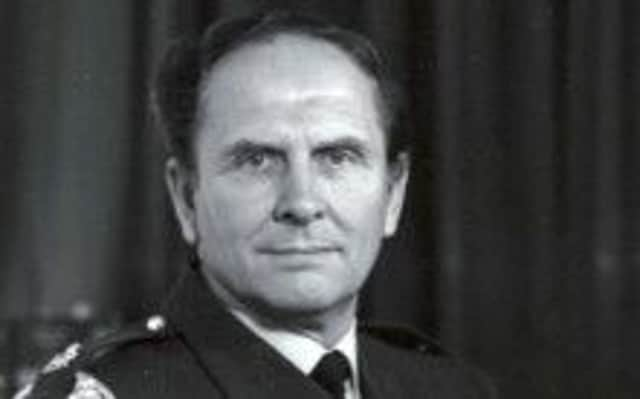Obituary: Air Commodore George Innes CBE


Air Commodore George Innes was head of RAF counterintelligence and was instrumental in uncovering a high-ranking Soviet spy in 1968. In a most detailed operation Innes discovered a serious breach in RAF security that led to the arrest and conviction of an RAF signals specialist, Chief Technician Douglas Britten. He was 36 and stationed at RAF Digby in Lincolnshire which was a secretive arm of the Government Communications Headquarters. Covert surveillance of Britten was carried out as information had been received that an individual was passing information to the military arm of Soviet Intelligence System. MI5’s enquiries proved inconclusive and the file was passed to Innes and the RAF.
Innes set up a specialist team of intelligence officers, linguists and radio operators and initiated an extensive search of the entire staff at RAF Digby. Their painstaking work – Innes followed Britten to Cyrpus where he served in what was the UK’s most important listening station – and had him photographed meeting the cultural attaché at the Soviet Embassy in London. The indisputable evidence that Innes gathered led to Britten’s arrest in 1968.
Advertisement
Hide AdAdvertisement
Hide AdInnes discovered Soviet equipment in his flat and Britten immediately confessed. At the trial at the Old Bailey he pleaded guilty and was sentenced to 21 years in prison. The case reflected Innes’s ability to lead a complex spy enquiry and gain a conviction with conclusive evidence. Throughout his career Innes was involved in contentious and intricate matters; his diplomacy and tact often proved essential.
George Innes was born in Musselburgh, East Lothian, and educated at the nearby Crookston School which closed in 1954. In 1944 Innes joined the RAF and trained as a pilot at RAF Weeton and in South Africa, qualifying just as the war ended.
He then trained and qualified as a policeman with the Edinburgh City Police, working for some years in the office of the chief constable.
Innes then rejoined the RAF and after being in charge of RAF Police Dog Training at Netheravon he was commissioned into the Provost and Security Branch of the RAF.
An early challenging operation occurred in 1946. Innes was in command of an elite police unit in Bangkok following the death of King Rama VIII, who had been shot in his bedroom. Innes was ordered to ensure the safe evacuation of his successor King Rama IX whose life the authorities considered was in jeopardy.
When the RAF withdrew from Siam, Innes was stationed at Rangoon and appointed commander of the Special Investigations Branch of the RAF Police in Burma/Siam. He grew to love the area and enjoyed his service there – as he did later ones in Hong Kong and Singapore.
To broaden his experience in 1956 Innes was appointed security officer for Task Force Grapple – the highly secretive operation centred on Christmas Island in the Pacific. Operation Grapple was, in fact, the name given to the British nuclear tests of the hydrogen bomb carried out from 1956 to 1958.
It was a hotly contentious issue which damaged the Macmillan government’s popularity. Innes was empowered to ensure the secrecy of the tests and the safety of the service people involved. He inaugurated a strict code of safety and before each nuclear detonation took place, an extensive and comprehensive set of standard operating procedures were employed. All of the nine bombs were exploded in the air, rather than on the ground, to reduce nuclear fallout.
Advertisement
Hide AdAdvertisement
Hide AdInnes was among the RAF security advisers who offered Lord Denning counsel during the 1963 Portland Spy Ring enquiry – a notorious case of Soviet spies operating in urban Ruislip and Portsmouth. His balanced and informed experience brought Innes considerable recognition and he was often called upon to provide background and specialist knowledge in a number of other high-profile enquiries.
In 1976 Innes was appointed an aide-de-camp to the Queen and RAF Provost Marshal, the highest post within his specialist branch. It is an important role within the security service and oversees policing, counterintelligence and specialist security support throughout the RAF. He was awarded the CBE when he retired two years later.
He continued his close association with the RAF and served as principal emergency planning officer (responsible for home defence and responding to natural disasters) for Strathclyde Regional Council, and later filled a similar post with the Greater London Council.
Innes remained a fervent Scot and attended rugby matches at Murrayfield until quite recently. He regularly played the bagpipes and was a keen golfer.
Although Innes died in Dorset, his funeral took place in the town of his birth – at St Michael’s Church at Inveresk. Innes married Betty, a former Waff, in 1947.
She and their son and daughter survive him.